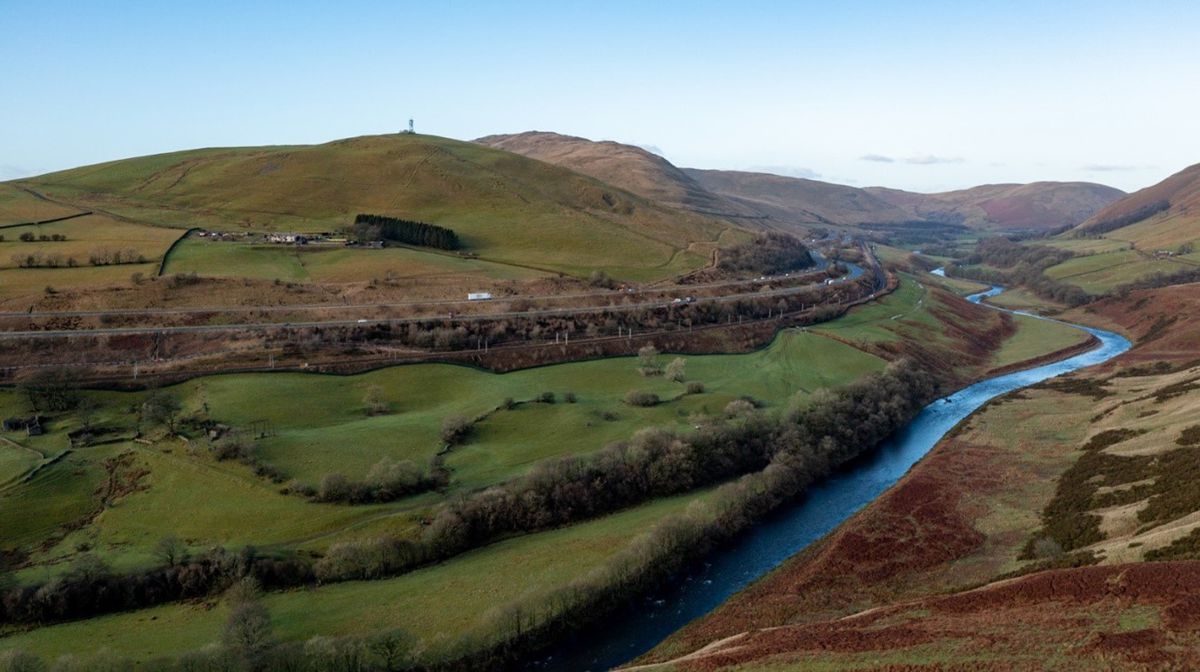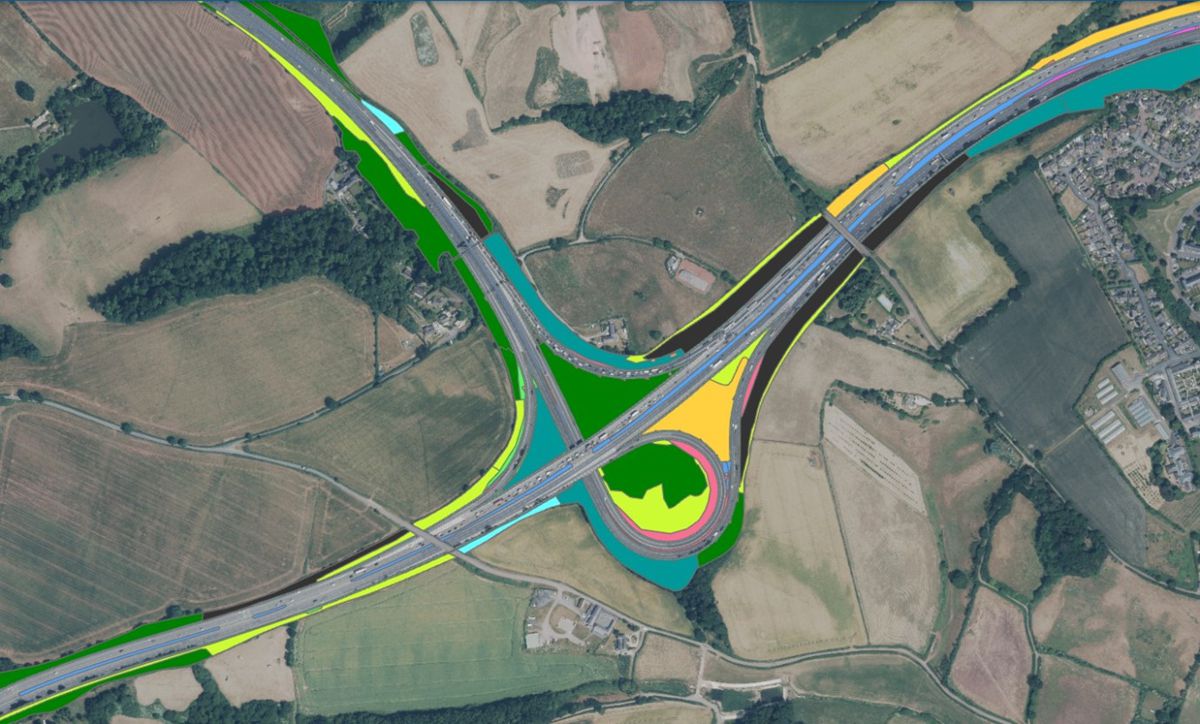Green Mapping Project boosting Biodiversity on England’s Road Network
Using the new state-of-the-art mapping tool will make it easier for National Highways to keep track of its Soft Estate ecosystems bordering the country’s 4,300 miles of motorways and major A-roads.
Over the last 10 to 15 years, routine inspection of the Soft Estate has provided a basic level of information. However, this needs to be improved if the government-owned company is to identify, manage and prioritise maintenance of the soft estate more efficiently, ultimately boosting biodiversity.
The project, providing regular insight across the Soft Estate, will help the company halt the decline of biodiversity across its activities by 2025, and support informed maintenance and renewal activities for the next Road Period (2025-20230)

In Oct 2023, the project completed its Concept Stage which explored whether answering the question of biodiversity net gain was possible using remote sensing and spatial analytics.
Funded through the Designated Funds Innovation and Modernisation fund, the concept stage was conducted with the Connected Places and Satellite Applications Catapult.
Ben Hewlett, National Highways’ Senior Environmental Advisor, said: “We’re excited to be working in this innovative area to ensure we’re improving our asset knowledge of the Soft Estate, maximising its biodiversity, and bringing long-lasting benefits to people, nature and wildlife. This is a glowing example of how new technologies such as AI can help to improve biodiversity at scale.
“This is an important building block of the work we’re undertaking to protect and enhance the ecology and the environment across the country, with an aim of achieving no net loss of biodiversity across all our work areas.
“We know roads have the potential to compromise the quality of their surrounding environments. For wildlife, roads can fragment important habitats, putting pressure on plant and animal populations.
“This project should help combat some of these challenges, by improving asset insight, identifying areas where we can increase biodiversity, putting nature at the heart of our network operation.”

National Highways is becoming one of the country’s leading promoters and creators of natural habitats as it seeks to boost biodiversity across the country.
As one of the biggest landowners in the UK, the government-owned company that operates 4,300 miles of England’s motorways and major A-roads, is on course to achieve its 2020 commitment of halting the decline of biodiversity and achieving no net loss in biodiversity across its activities by 2025.
And, in the next five years, it will make a further move toward becoming nature positive by delivering at least a 10 per cent net gain in biodiversity on its Major Projects and moving towards a no net loss position for the Soft Estate between 2025 and 2030.
The gains are being delivered through enhancements built into National Highways’ Major Projects, biodiversity sustaining operational activities, and innovative partnerships with conservation charities.
Coinciding with the United Nations Biodiversity Day on 22 May, National Highways is marking Nature Week, highlighting the nature-focused work it and its partners do around the country.
The projects include:
- Transforming the site of a former open cast mine next to a major motorway upgrade on the M6 near Wigan into new wetlands, grassland and areas of woodland
- creating a linear pollinator network along the M65 and the M56 near Manchester
- creating wetlands to help clean river water near the M5 in Birmingham
- a four-year project to introduce highland cows to the Nene Valley SSSI near Wellingborough
- a 15 year agreement to help species rich grasslands on the Greena Moor Nature Reserve in Cornwall thrive
- helping bat populations to thrive on historic railway structures across the UK

Many of the projects are being delivered with help from National Highways’ Designated Funds Environment and Wellbeing fund. This fund is helping us operate our business in an environmentally responsible way, while making sure sustainability shapes our work from start to finish.
Our Designated Funds initiatives are separate to our core work of operating, maintaining and improving England’s strategic road network. They provide ring-fenced funding that we use to invest in and support initiatives that deliver lasting benefits for road users, the environment and communities across England.
From 2020 to 2025 – our second road period – we’ll be investing £936 million in Designated Funds. Our four funding streams for this period are:
- Safety and congestion
- Environment and wellbeing
- Users and communities
- Innovation and modernisation
Find out more about National Highways’ biodiversity work here.




























